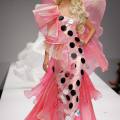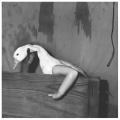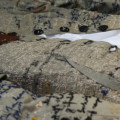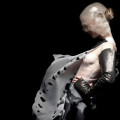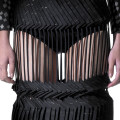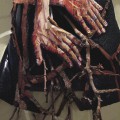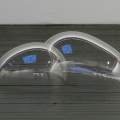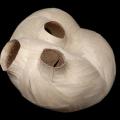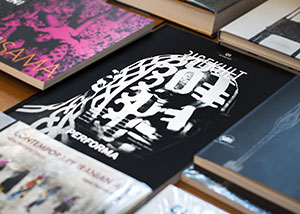“I am interested in the everyday life. All the materials that surrounded me could be useful, as well as the objects, topics involved in contemporary society. My work speaks about the whole entity of a human being: the physical, the spiritual, the psychological and the political.” Wurm is known for his humorous approach to formalism. About the use of humor in his work, Wurm says in an interview: “If you approach things with a sense of humor, people immediately assume you’re not to be taken seriously. But I think truths about society and human existence can be approached in different ways. You don’t always have to be deadly serious. Sarcasm and humor can help you see things in a lighter vein.” Although the images are slightly humorous, they extend or manipulate reality in ways that can be disturbing. Wurm’s work portrays manipulated images of things in every day life, things that look familiar, but which become distorted. Pieces like Truck, where a truck curves up against the building or Narrow House, a thin, claustrophobic house, take something familiar to all and distort it by enlarging, curving it, or slimming it down. “I will often use humor to seduce people”, admits Wurm. “To get them to move closer, but it’s never very nice when they look closer.” Wurm’s work is often critical of Western society and the mentality and lifestyle of his childhood during post-World War II Austria. It is important to understand that although Wurm’s sculptures are humorous and ridiculous, they are actually quite serious. His criticism is playful, but should not be confused with kindness. He represents his criticism of objects, such as clothing, furniture, cars and houses, everyday objects are to his audience. Common themes in his work include not only our relationship to banal everyday objects, but also philosophers (like Sigmund Freud and Ludwig Wittgenstein), life in postwar Austria and gaining and losing weight. In talking about his often mentioned topics of losing and gaining weight and philosophy Wurm stated, “It’s about the difficulty to cope with life. Whether with diet or with a philosophy”. What is being talked about here is how diet and philosophy are two parts of our daily lifestyle: on the one hand and on the other hand physically spiritually. In the context of the quote, this “diet” could concern cars or clothes or food: a diet in which you consume too much ensures that you will exist in excess. Sometimes people buy things that symbolize high status with which they manage their life. Of this act his bloated works speak to. But his work also deals with philosophy by focusing on philosophers who lived in the time of the early twentieth century.
|
|
|






















